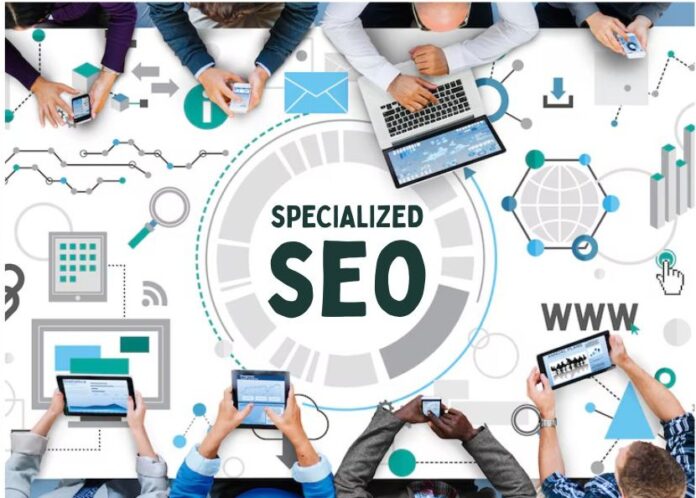Planning your next holiday often starts online, and the first place most people look is search engines. If you’re in the travel business—or representing a travel brand—understanding how to get noticed in those online searches is crucial. In my 15 years leading digital marketing teams, I’ve seen firsthand how a strong SEO strategy tailored specifically for travel can drive bookings and boost brand visibility. Travel SEO isn’t just about keywords; it’s about connecting with travellers at the exact point they’re dreaming, researching, and booking their holidays. Here’s what you need to know to choose the best travel SEO services for your next holiday campaign, focused on the UK and local markets.
Tailored Content Strategies That Convert
The heart of any effective travel SEO service is meaningful content. The reality is that generic content won’t cut it in today’s competitive landscape. What I’ve learned is that the best travel brands thrive by telling compelling stories about destinations, experiences, and itineraries that resonate with their audience’s holiday dreams. In practice, this means travel SEO services should focus heavily on creating rich, engaging, and locally relevant content that answers questions potential travellers have. This approach builds trust, drives organic traffic, and converts searches into bookings.
Technical SEO and Site Performance Optimization
One frequent misstep I’ve seen (and had to fix) comes down to technical SEO—making sure your website is fast, mobile-friendly, and easy for search engines to crawl. Back in 2018, everyone overlooked site speed as a ranking factor; now, it’s non-negotiable. The best travel SEO teams run thorough audits, streamline site architecture, and ensure smooth user experience. Remember, travel bookings happen on the go, so a slow or clunky site can lose you customers before you make the sale.
Local SEO for Travel Businesses
The travel industry isn’t just global; it’s incredibly local. For UK-based travel services, local SEO is a game changer. I once worked with a client who ignored local optimisation and missed out on vital inbound leads from nearby travellers. A strong local SEO approach includes optimising Google My Business profiles, managing local reviews, and crafting location-specific pages that speak directly to travellers looking for holidays or services around their area. The reality is, local visibility drives bookings that big broad efforts alone can’t reach.
Link Building Through Digital PR and Influencer Partnerships
From a practical standpoint, gaining authoritative backlinks remains one of the most reliable ways to boost your travel website’s domain authority. Many travel SEO services excel by engaging in digital PR campaigns and forging influencer partnerships that get your brand mentioned in top travel publications and blogs. This isn’t about vanity metrics; it’s about targeted exposure that can move your website up search results and directly impact booking rates.
Data-Driven SEO and Continuous Optimization
The bottom line is, travel SEO is not a “set it and forget it” task. The best SEO providers use transparent analytics to track keyword rankings, website traffic, and—most critically—booking conversions. They continuously test, tweak, and improve strategies based on real numbers and market trends. Over the years, I’ve learned to rely on regular reporting and building feedback loops between marketing, sales, and product teams to keep SEO efforts aligned with actual business growth.
Conclusion
Choosing the best travel SEO services for your next holiday campaign is about more than just rankings—it’s about building a strategy rooted in real-world business outcomes. Look for providers who combine deep travel industry expertise, technical proficiency, local market knowledge, and a commitment to data-driven optimisation. What I’ve seen is that the right SEO partner becomes an extension of your team, navigating the complexities of the travel market to make sure your brand stands out and converts browsers into loyal travellers.
Frequently Asked Questions
What makes travel SEO different from regular SEO?
Travel SEO focusses on targeting travellers’ specific search intents, requiring detailed local and destination content, rate and availability accuracy, and competitive analysis in a dynamic market.
How important is local SEO for travel companies?
Extremely important—local SEO connects travel brands to region-specific customers, builds trust with local reviewers, and drives bookings from people searching for nearby travel options.
Can travel SEO services handle international markets?
Yes, many travel SEO agencies specialise in multi-language and international SEO strategies, helping brands reach global travellers while adapting content and technical elements appropriately.
How long does it take to see results from travel SEO?
Typically, you can expect to see measurable improvements in 3 to 6 months, but full impact on bookings and revenue might take longer depending on competition and current website health.
What role does content marketing play in travel SEO?
Content marketing is vital; it educates, inspires, and engages potential travellers, helping to capture interest and convert it into bookings through storytelling and useful information.
Are backlinks still important in travel SEO?
Yes, authoritative backlinks from reputable travel sites and influencers remain crucial for improving search visibility and domain authority in a competitive industry.
How do travel SEO agencies measure success?
They focus on KPIs like organic traffic growth, keyword rankings, bounce rates, customer engagement metrics, and most importantly, booking conversions.
Should I choose a travel SEO agency based in the UK?
Choosing a UK-based agency can offer advantages in understanding the local market nuances, search behaviour, and compliance with regional regulations.
Can AI improve travel SEO services?
AI can help automate data analysis, identify trends, and enhance content creation, but human expertise remains essential for strategy and nuanced market understanding.
What common mistakes should be avoided in travel SEO?
Ignoring mobile optimisation, neglecting local SEO, focusing on vanity metrics instead of conversions, and not updating content regularly are frequent and costly mistakes.

